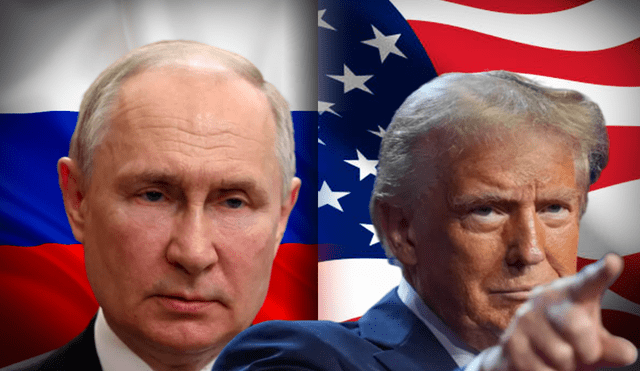Why Russia sees the Trump-Putin call as a victory in the Ukraine conflict
The recent Trump-Putin call regarding the Ukraine conflict is being hailed as a victory by Russia. Explore why the Kremlin perceives this diplomatic move as a success and how it affects global relations.

In a significant diplomatic move, the recent call between Presidents Donald Trump and Vladimir Putin is being celebrated in Russia as a diplomatic victory. While the U.S. had initially sought a 30-day ceasefire in Ukraine, Putin's refusal to agree to an unconditional truce and his subsequent conditions led to a different outcome. The Russian government viewed the call as a success, having successfully avoided making major concessions to Ukraine or the U.S. Despite the lack of a concrete ceasefire agreement, Russia managed to secure a temporary halt in Ukraine’s energy infrastructure attacks, presenting this as a strategic gain.
For Russia, the call signified not only a shift in diplomatic dynamics, but also an opportunity to engage the U.S. without making significant sacrifices. While President Trump praised the discussion, emphasizing that it was a productive step towards peace, the Kremlin took a more calculated stance. Putin’s insistence on specific conditions for peace, including halting Western military aid to Kyiv, set the stage for further negotiations. The conversation has been framed by Russian media as a key victory for Moscow in its efforts to retain control over the ongoing conflict.

ALSO SEE: Zelensky to speak with Trump today on partial ceasefire and Ukraine’s territorial integrity
Trump-Putin call's implications on global diplomacy and Ukraine
The Trump-Putin call represents a pivotal moment in the ongoing war in Ukraine and its wider impact on international diplomacy. While Trump hailed the conversation as a positive step, the phone call itself revealed the complexities of global negotiations and the intricate balancing act that both the U.S. and Russia must perform. The call did not result in the hoped-for full ceasefire but did provide an opportunity for Putin to set the terms of future negotiations, signaling to the world that Russia remains a central player in the diplomatic arena.
In light of these developments, the call’s implications extend beyond just Russia and Ukraine. Global leaders and policymakers will closely monitor how the U.S. responds to Putin’s demands, especially the cessation of military aid to Ukraine and intelligence-sharing. The United States’ response will play a crucial role in shaping the future of international relations, particularly with respect to NATO and other allies. With Russia rejecting the ceasefire proposal and outlining its own terms, the world’s attention is fixed on whether further dialogue will lead to a resolution or a prolonged conflict.
How Putin’s conditions could impact Ukraine’s Military Strategy
One of the most critical elements of the Trump-Putin phone call was Putin’s demand for an end to Western military aid to Ukraine. This condition, if accepted, could have profound consequences for Ukraine’s military capabilities. The U.S. has long been a vital supporter of Ukraine, supplying weapons, intelligence, and training to bolster its defenses against Russian advances. If Russia succeeds in pressuring the U.S. to cut off this support, it could significantly weaken Ukraine’s ability to defend itself and shift the balance of power in the conflict.
While Ukraine’s leadership remains firm in rejecting such conditions, the international community’s response to Putin’s demands will be crucial. As the U.S. and Russia continue their dialogue, the impact of these negotiations on Ukraine’s military strategy cannot be underestimated. Ukraine’s ability to maintain its defense and territorial integrity will depend heavily on the continued flow of support from the West, and any disruption could alter the trajectory of the war.

ALSO SEE: Chief Justice John Roberts defends judicial independence amid Trump's calls to impeach judges
Global reactions to the Trump-Putin call
For Putin, the phone call was an opportunity to reaffirm Russia’s stance in the international arena, while Trump, despite facing political challenges at home, positioned himself as a mediator of sorts in the quest for peace.
The international community, particularly NATO and EU members, is watching closely as the two powers navigate the delicate issue of peace negotiations. The future of Ukraine, its sovereignty, and the broader security landscape in Europe depend on the outcomes of these high-stakes conversations. How other nations respond to the evolving diplomatic climate will play a pivotal role in determining the path forward for global relations and the future of the Ukraine conflict.











